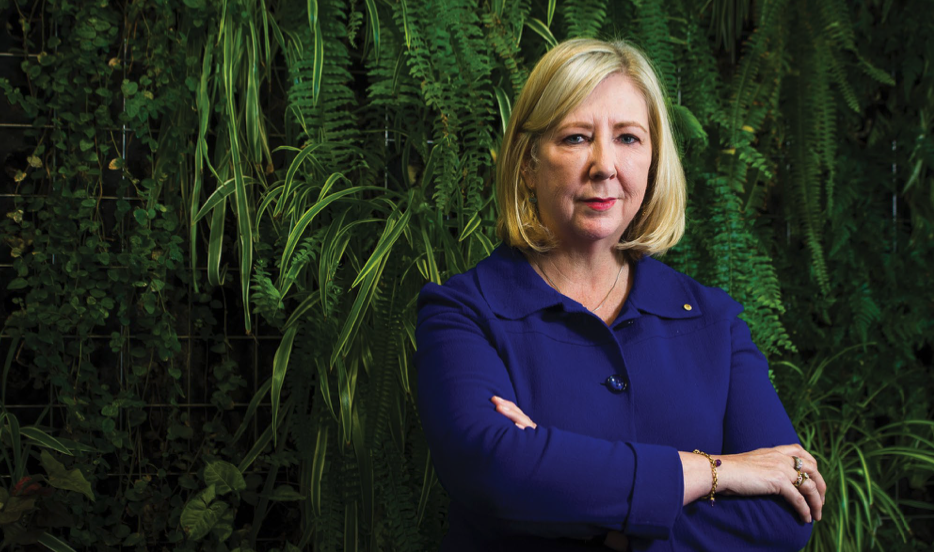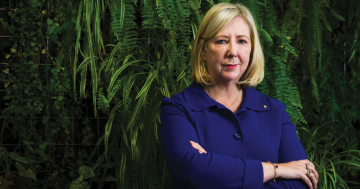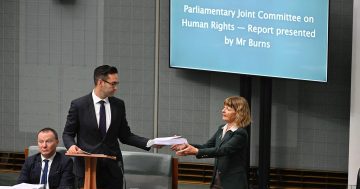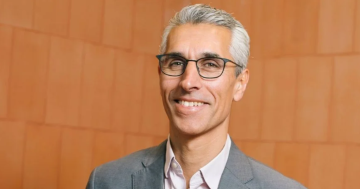
ACT Human Rights Commissioner Dr Helen Watchirs leaves behind a formidable legacy. Photo: ACT HRC.
It takes guts and determination to fight the same fight, banging your head against walls of bureaucracy and politicians for decades.
That’s what Dr Helen Watchirs, outgoing president of the ACT Human Rights Commission and Human Rights Commissioner, has been doing for nearly 20 years. And she’s made a lot of headway.
ACT Human Rights Minister Tara Cheyne recently announced that Professor Penelope Mathew will return to Canberra to fill Dr Watchirs’ giant shoes in late October.
Dr Watchirs has been applying her sharp intellect to advocate for human rights since she was appointed the lead of the then Human Rights Office in 2004 when the ACT passed its Human Rights Act, the first in the country.
Dr Watchirs’ achievements are manifold and best reflected in the commission’s growth from just five staff to 109 today. Those staff help handle thousands of human rights, discrimination, health and other complaints against government agencies, as well as supporting victims of crime and other vulnerable people.
Much of its achievements go unseen as it quietly goes about holding the government to account and taking the lead on the human rights movement.
“We’re the first human rights commission in Australia and possibly the world to get access to draft cabinet submissions,” Dr Watchirs said.
The extraordinary confidence the government has shown in the commission by giving it access to highly confidential cabinet papers doesn’t mean it’ll get an easy ride on new laws it’s proposing.
“As soon as the bill is public, we’ll go public with criticism if we disagree,” Dr Watchirs said.
“The earlier we’re consulted, the more chance proposed laws have of being compatible with human rights legislation. And there have been laws that have not got through, such as anti-bikie gang laws. They didn’t get through because of human rights compatibility problems,” she added.
There was a huge controversy in 2016 when the government was accused of being soft on criminal gangs by acting on the commission’s advice to uphold the basic human right to freedom of association.
Currently, the commission is in conflict with the government over part of its bill to raise the minimum age of criminal responsibility initially from 10 to 12 years and then to 14 years two years later.
Led by Children and Young People Commissioner Jodie Griffiths-Cook, the commission pushed hard and long for the reform and wants the bill to pass, but not its exemptions for older children charged with committing very serious offences.
“We disagree with the government. We think exceptions are not a good idea,” Dr Watchirs said.
“It’s possible the Supreme Court may eventually find them incompatible” with the Human Rights Act, she said.
The AFP’s ban on spit hoods in April “is really good news”, Dr Watchirs said. It followed pressure from the commission, and the issue gained national media coverage when ACT police used one on a 16-year-old girl.
Another “very significant” nation-leading reform driven by Dr Watchirs’ advocacy was the inclusion of First Nations’ cultural rights in the Human Rights Act in 2016.
“We lobbied the government with the Aboriginal and Torres Strait Islander Elected Body. That really showed that our expertise with local community support is what will convince the government to do legislative reform,” she said.
Talking to Dr Watchirs, it’s clear she’s leaving with some frustrations, especially a restriction under the Human Rights Act that means that cases have to be heard in the Supreme Court.
“Of course it’s very costly and there are lots of delays. There haven’t been many cases with these access barriers to ordinary people,” she said.
“But we’ve won a few significant ones recently where we’ve intervened, such as the case on conditions in detention. I look forward to new jurisdiction that will allow complaints to be handled by the ACT Commission [like Queensland].”
Minister Cheyne has tabled a bill in the Legislative Assembly introducing a new complaints mechanism that will allow people to make complaints to the commission about breaches of human rights by government agencies.
Also on Dr Watchirs’ to-do list are external reviews of the Community Services Directorate’s child protection decisions and an inquiry into the over-representation of First Nations people in the ACT justice system.
And there’s the perennial under-resourcing of human rights. The commission has only ever had funding for two human rights lawyers, and it lacks sufficient funds for corporate support and community engagement. How many Canberrans know we have a human rights Act or what the commission actually does?
Dr Watchirs says her biggest achievement has been to “make human rights business as usual in the ACT, that deep cultural change to make government more democratically accountable”.
“Just keeping on the government to reform the human rights and discrimination acts, carefully looking at all the legislation to check it was human rights compliant and influencing public debate over two decades.”
It’s likely Dr Watchirs will continue to be a leader in the movement for a national Human Rights Act.
“I think the public doesn’t quite understand there’s little comprehensive legislative or constitutional protection of human rights at the national level”, she said.
The ACT’s Human Rights Act had helped the government balance its interests with people’s fundamental rights and freedoms, Dr Watchirs said.
Australia is the only liberal democracy in the world without a national Human Rights Act. “It’s time for us to step up,” she said.
Original Article published by Deb Nesbitt on Riotact.











